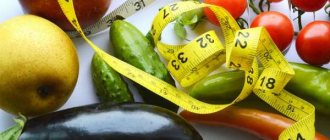One of the most common problems of modern society is excess weight. According to statistics from the World Health Organization, more than 1 billion people on the planet have health problems due to extra pounds. In this situation, monitoring your weight and health is vital. But doing this is not as easy as it might seem at first glance.
Scientists predict that by 2025, 20% of the world's population will be obese . This problem is relevant for people of various professions and social status, gender, age and place of residence. About 50% of Europeans are overweight, and 30% of them are obese. In Russia, these figures are 30% and 25%, respectively, but according to statistics among young people, this figure is steadily growing. Obesity has become a global epidemic.
And this problem is much deeper than changing clothing sizes. Obesity leads to serious illnesses. Arterial hypertension, diabetes mellitus, reproductive dysfunction, atherosclerosis - this is not a complete list of problems that obesity can cause. And people just want to be slim and beautiful. Many today have simply given up in the fight against extra pounds. But experts are sure that there is a way out - to refuse food after six in the evening .
Why is it good not to eat after six?
“I don’t eat after six,” every person who is concerned about their own health and excess weight has said these words to themselves at least once in their life. Many nutritionists support this method of getting rid of accumulated kilograms. After a working day, a person does not need so much energy, because physical activity decreases, and the calories that enter the body in the evening do not have time to be burned and turn into fat deposits.
Another reason why you should give up eating “after six” is that proper sleep is not possible on a full stomach. When a person is in a horizontal position, the digestive tract works with difficulty, calories are not consumed, and as a result the sides grow.
The third reason to avoid evening meals is due to enzymatic activity. Its peak occurs at noon, and gradually decreases in the evening. Therefore, everything eaten in the evening lies as a dead weight in the stomach until the morning, contributing to the formation of toxins. This is fraught not only with the accumulation of excess weight, but also with the failure of various body systems.
Why can't you eat after 6 pm?
The main explanation for the ban on evening meals is the requirement to reduce the load on the digestive tract. According to supporters of the statement that eating after 6 is harmful, a person’s biological clock causes the activity of internal organs to decrease at night, the gastrointestinal tract should slow down its activity, instead of digesting food, especially heavy food. If it works, it does it poorly, and the products become waste that accumulates in the intestines.
However, there are other reasons why you should not eat after 6 pm:
- The slowdown of metabolism closer to the night provokes the deposition of what is eaten in the evening into reserves, because. insulin is produced.
- Lack of activity after eating in the evening makes the food received at this moment converted not into energy, but into fat.
Why can't you not eat after six?
To be fair, it is worth noting: the postulate that eating after six is harmful is relevant for those who go to bed around 10 p.m. If a person goes to bed around midnight, the last meal may well be moved to a later time. It’s not about the number “six” on the clock, but about a certain time interval that must be maintained before going to bed without consuming food. The main thing in this matter is a clear schedule, which helps to debug the processes inside the body.
Cinnamon.
Sometimes an increased feeling of hunger is associated with metabolic characteristics. If there are such problems, it is worth helping the body with a proven auxiliary drug. For example, to improve metabolism and lose weight - cinnamon capsules. Cinnamon not only reduces cravings for flour and sweets, helps reduce fat, but also normalizes blood sugar levels, increases performance and improves mood. It will be a good help for those who have decided to put things in order in their life schedule.
And in the evenings, people are drawn to the refrigerator when they are trying to relax after a hard day, are used to eating in front of the TV, or cannot deny themselves a portion of sweets.
FoodQuestion to an expert: Is it true that eating after six is harmful?
answers to most of the questions that concern us online. In this series of materials, we ask just such questions - burning, unexpected or common - to professionals in a variety of fields.
“Don’t eat after six” has long entered the Russian language, not only as a synonym for a weight loss formula, but also as a healthy habit. Does this claim have scientific basis? Are evening calories different from morning calories? Let's figure it out together with an expert.
Masha Budrite
nutritionist, graduate of King's College London
Where the idea came from that to lose weight or improve health is better not to eat after 18:00 is unknown. This figure appears mainly in the post-Soviet space, and in English-speaking countries you can more often hear about eight in the evening. The expression “Eat breakfast yourself, share lunch with a friend, and give dinner to the enemy” is attributed to the Russian commander Alexander Vasilyevich Suvorov, who, apparently, had very strict rules for the daily routine. Duke Richelieu wrote about him in his memoirs: “Suvorov has lunch in the morning,” he writes, “he has dinner in the afternoon, sleeps in the evening, sings part of the night, and at dawn he walks almost naked or rolls in the grass, which, in his opinion, is very good for health.” ...“. The French military leader Comte de Damas, who served in the Russian army for several years, was once invited by Suvorov to dinner “sharply at six,” but when he arrived at the appointed time, it was explained to him that the commander-in-chief meant six in the morning, not in the evening. Perhaps the popular restriction on eating “after six” is connected with this story.
In traditional Chinese medicine, it is believed that depending on the time of day, different “meridians”—areas of circulation of “energy” within the body—are activated in the body. The day is divided into twelve segments, each of which corresponds to the greatest activity of a certain meridian. According to Chinese sages, it is best to wake up and empty the colon from five to seven in the morning, to have breakfast from seven to nine, and breakfast should be the largest meal of the day - supposedly at this time the stomach is most active. Lunch occurs between eleven in the morning and one in the afternoon, and the last meal should be from five to seven in the evening (from nine to eleven you need to go to bed). From the point of view of Chinese medicine, if you follow these and some other instructions, you can achieve a balance between positive energy (yin) and negative energy (yang).
Of course, such a view is far from evidence-based medicine - today science has not found any evidence that human health depends on the movement of intangible “energy” in the body. From the point of view of science, we have a “biological clock”, and it is not based on metaphysical energy, but on proteins that control biochemical and physiological processes in cells. The main “clock” with which the others are synchronized is located in the hypothalamus, and the main stimulus for them is light. Circadian rhythms are influenced by various external and internal factors - time zone changes, shift work, unstable times of waking up and falling asleep. Circadian rhythms determine the state of the body during the day, affecting, among other things, the quality of sleep, hunger and mood. For the discovery of genes responsible for the production of biological clock proteins that influence circadian rhythms, Jeffrey Hall, Michael Rosbash and Michael Young received the Nobel Prize in 2021.
Modern dietetics believes that from the point of view of weight loss and gain, it is only important how many calories a person received per day and how many were spent, regardless of what time of day the person ate. However, in some studies, mice that ate before bed gained weight compared to animals that ate the same amount of calories at other times of the day. Problems arose when the lights were turned on for the animals at night—apparently, their circadian rhythms were disrupted.
The only important thing is how many calories a person received per day, regardless of what time of day the person ate.
Studies in humans show different results. According to nutrition and lifestyle statistics for British children from the largest analysis of the National Diet and Nutrition Survey, eating after eight in the evening is not associated with increased weight. The same thing happens with diet in adulthood - the total number of calories received per day has a stronger effect on body mass index than the timing of meals. An important nuance: scientists say that people who eat at night have a higher risk of getting too many calories in a day as a whole. A late dinner in itself is not a problem; but the situation when the food at night is something like a second or even third dinner should raise questions.
A recent study in Japan found that a short interval (less than two hours) between dinner and bedtime does not affect blood glucose levels and does not increase the risk of diabetes. Eating late can lead to unpleasant consequences such as abdominal discomfort and difficulty falling asleep. In this regard, the recommendation “not to eat after...” may have its place, but the specific numbers depend on when you go to bed; If you have heartburn or bloating, it is recommended not to eat 3-4 hours before bedtime. Of course, the approach must be individual: one person sleeps better if several hours have passed after dinner, while another needs a snack or a glass of milk just before going to bed.
In recent years, intermittent fasting has gained popularity. According to one of its variants, you can only eat for eight hours a day, and for the remaining sixteen hours you must abstain from food. Some studies show that this approach can be beneficial: various organs respond better to insulin, and a number of risk factors for cardiovascular disease, such as “bad” cholesterol, inflammatory markers, and others, are reduced. However, studies in people following this diet have been brief and do not show how this eating pattern affects long-term health. The problem with this approach is that, as with any diet with strict rules, there is a risk of “relapse,” and alternating diets and relapses can lead to a whole range of eating disorders.
Dietitians and nutritionists never tire of repeating that to stay healthy, it is much more important to maintain a balanced diet and work on eating habits than to try short-term solutions like diets. Avoiding food when you feel hungry may not produce the desired results, leaving you feeling tired, anxious, or in a bad mood. If you are concerned about your own eating habits, you should contact a specialist who will help you figure it out and give you the necessary recommendations.
PHOTOS: zilvergolf – stock.adobe.com, store.moma
Eat small and regularly
In order not to eat after six, you need to have time to eat everything before six. This is of course a joke, but there is some truth in it. To suppress your evening appetite, you should not ignore breakfast, and during the day you need to provide 5-6 meals. This will prevent the development of acute hunger. And of course, you need to reconsider your daily diet. No smoked meats or chocolates, only vegetable salads, chicken breast or turkey, fish, cottage cheese, greens. This is quite enough to keep you feeling full throughout the day.
The connection between evening fasting and hormones
Weight loss when refusing to eat after six is facilitated by increasing the amount of sleep. Without eating in the evening, in most cases, people go to bed earlier to avoid the temptation to eat something. During sleep, the hormone leptin is produced, which suppresses appetite. Increasing the amount of this hormone reduces the feeling of hunger during the day, thereby promoting weight loss. In addition, a well-rested person moves more. This uses up excess energy, which also greatly affects weight loss.
Eating normally during the day avoids excessive production of the hormone ghrelin. This hormone stimulates appetite. As the feeling of hunger increases, its level in the blood increases. Timely, regular meals prevent ghrelin from being produced in large quantities. This directly affects your appetite level. After eating, the level of this hormone drops rapidly, and the feeling of hunger disappears. Long breaks between meals significantly increase ghrelin levels and this leads to overeating, and as a result, excess weight.
The amount of weight lost can reach serious amounts in a fairly short period of time. The exact number of kilograms lost per month depends on the amount of excess weight and the diet of a particular person.
Help your body maintain proper nutrition
One of the main “evening” problems is sweets. It is enough to eat one piece of candy to trigger a ravenous appetite. If you don’t have enough willpower to give up sweets, you should pay attention to helpers. The combination of dietary fiber and vitamins promotes weight loss, effectively helps cope with hunger and restore strength after serious physical and mental stress.
As usual, in the evenings people have an appetite. And despite all the promises not to eat after six, at some point we can’t stand it and eat half the pan, and then we are tormented by our conscience that we violated the terms of the diet. In fact, the evening appetite can be fooled. How do you like it?
So, here are a few ways to avoid eating at night: 1 Take a hot bath. This method is calming. Processes in the body become slower, appetite slowly disappears. Sweating also increases, resulting in excess fluid being removed from the body. 2. Liquid is not food. A mug of mineral water with lemon, a cup of green tea or tomato juice (low-calorie, of course) significantly reduces the feeling of hunger. In addition, toxins are removed from the body using fluids. 3. Mint tincture. To prepare the tincture, you need to pour boiling water over a tablespoon of the herb and leave for 5-10 minutes. Then you need to relax and drink in small sips. Don't forget to think about something pleasant! Using this method, you can not think about hunger for three hours. 4. When brushing your teeth in the evenings with toothpaste, the reflex automatically turns on in the body: “After brushing your teeth, you should not eat.” 5 While walking in the air, we forget about food, and this also has a positive effect on our appearance. Sometimes, it happens that your appetite after a walk, on the contrary, increases, so you need to go for a walk at the very time you are going to go to bed. 6. Light exercise will help you burn some of the extra calories and forget about foods fried in a frying pan. However, it is important not to overdo it, so as not to achieve the opposite result. 7. Conversation. To take your mind off food, you can, for example, call a friend. 8. A glossy magazine is one of the ways to reduce appetite. When you see slender beauties, you don’t want to eat as much anymore. 9. Aromatherapy. The smell of perfume or eau de toilette with fruity and floral aromas suppresses appetite. 10. Snack. A stalk of stalked celery, one quarter of a sour apple, two fresh tomatoes and a medium carrot. Such a snack will not have a negative impact on your figure, since the products are low in calories. 11. During times of severe hunger, a couple of slices of chocolate will help the body overcome the urge to eat. If the portions are small, then sweets are even considered beneficial for the liver. 12 You need to grind three cloves of garlic and pour a glass of boiled cold water. Just one tablespoon of this tincture will reduce your appetite for the whole evening. But if you have stomach problems, if suddenly you suffer from colitis, dysbacteriosis, ulcers or diarrhea, then you should not use this method. 13. Disposal. If your evening appetite wakes up every day, then you should not keep high-calorie foods at home. It is necessary that the body is accustomed to the fact that dinner should be light. It is enough to restrain yourself from eating high-calorie foods in the evenings for a few days and you will no longer experience an urgent need for them.
Source: https://allinka.ru/post203142020/
For the most “resistant”
By changing your daily routine, it is much easier to cope with thoughts of not eating after 6 pm. After all, having gotten out of bed around 7-8 o'clock in the morning (at best), only by noon do we finally wake up, which means that the peak of our activity is the evening. Therefore, for those who do not want to give up evening TV watching or cannot tear themselves away from the computer, this method of limiting food will be quite severe torture. This category of people will find it very difficult, and sometimes even impossible, to turn to a healthy lifestyle. For them, the question of how to force yourself not to eat after 6 will disappear in the information flow.
The simplest solution in this case would be to reduce the calorie intake in the evening. The best option would be fruit snacks, as well as low-fat yogurt.
How to diet
However, it is important to know here that refusing to eat after 18.00 is suitable for people who go to bed at 21.00 - 22.00. That is, 3 hours should pass between the moment of the evening meal and sleep, and the body rests from food for 12 hours. As a result, the body loses accumulated fat deposits to support its own vital functions.
We should remember the Eastern rule, in which it is advised to give dinner to the enemy. During the day, the caloric content of consumed foods should decrease. Until noon you are allowed to eat any delicacies. After 12.00 the diet begins.
As a result, energy is recycled throughout the day. For lunch, be sure to have a first course and a second course. Breakfast should be hearty, but it is better to avoid overeating in the evening.
More on the topic >> What kind of pasta can you eat while losing weight - clearly, on the topic
As an example:
- in the morning - scrambled eggs, bread with a piece of cheese and tea - for those who like to make the drink sweeter, honey is suitable;
- snack - kefir, a glass of milk or yogurt;
- for lunch - soup, raw cucumber salad and buckwheat porridge with goulash;
- then you can snack on an orange or other fruits, for example, strawberries or cherries;
- It’s better to have dinner like this: lean meat and baked vegetables, and wash down what you eat with a glass of water.
A hearty morning meal is allowed, since after it city residents go to work, walk or exercise. Therefore, excess energy is burned. And after dinner it’s better to go to bed - this will help you recover after a hard day.
A few videos on the topic:
Back to the roots
Although each person has his own biological rhythm, responsibilities, passions and lifestyle, the awareness of getting back to basics, leading to healing, contributes to the overall healing process. When deciding how not to eat after 6 pm, it is worth remembering the natural slowdown of body functions at night. This is why you usually don’t want to go to the toilet at night, and there is no desire to eat. The best thing is to lie down and go to sleep. Everything eaten when digestive processes slow down becomes garbage, which to some extent pollutes our body. The lack of energy for processing food leads to a general slagging of the body, accumulation of adipose tissue, salt deposition and, ultimately, an increase in the risk of acquiring various diseases. The remainder of human energy in the morning hours is minimal, since it is spent mainly on digesting evening food in an intensive mode.
Diet negatives
The diversity of opinions and answers to such “burning” questions is often perplexing. The lion's share of methods aimed at rapid weight loss are based on a sharp limitation of any food products or a complete rejection of them. A fairly negative trend recently has been the use of various advertised drugs that supposedly or actually help reduce and suppress appetite. If you think about it, you can feel in such methods a certain absurdity and negativity in relation to human health.
Excluding certain food groups, and even more so the use of unknown chemical compounds and dubious extracts, even if it leads to sudden weight loss, does not improve health and well-being by 99.9%. The most effective and safest weight loss is, naturally, slow, limiting only the time of eating in the evening. At the same time, the main question arises: “How to learn not to eat after 6?”
Disadvantages of the diet
For many people, such a restriction seems uncomplicated. After all, you can continue to enjoy sweets, smoked meats and even French fries. Some women continued to drink their favorite beer, as well as vegetable and fruit juices and red wine.
But sweet and alcoholic drinks are very high in calories. Although, if a person was hungry before consuming them, a glass of juice is allowed.
There are other important points:
- Going to bed on an empty stomach is often difficult - this is what many users think, however, in this case, the morning appetite is also reduced. Although, if a person goes to bed without eating at all, he makes up for lost time at night by emptying the refrigerator.
- Not everyone can eat at 17.30 or half past five. After all, some people continue their working day or the person is in transport.
- There are jobs with night shifts or ending after 20.00 - 21.00, and sometimes later. Then you have to have a snack at home around midnight.
- When a lady allows herself to go with her husband, boyfriend or girlfriend to the theater, concert or cinema after work, it is obvious that she will return home late. Long events are difficult to endure without food, given that the journey home will also take from half an hour to an hour and a half. Therefore, you will have to eat either during intermission or at home.
More on the topic >> I'm losing weight: effective means for losing weight after 40
Some good advice
If we look at the problem in more detail, then enough practical and simple advice has been developed to solve the issue of how not to eat after 6 pm. First of all, you need to understand that you should not starve yourself, causing stress in the body. A low-calorie dinner will save the day.
The best option is fruits, low-fat yoghurts and kefir. Sometimes, especially at first, you can eat a vegetable salad without oil, a small piece of boiled chicken, and even an omelet with milk. It is necessary to try to make the transition period to giving up dinner as unnoticeable as possible for the body. This will help him get used to the new diet, and most importantly, get moral satisfaction (and not stress). It is really important at this stage to gain understanding from loved ones, to whom it would be useful to ask for support. It is much easier to stick to your chosen goal if they do not eat aromatic and high-calorie foods in your presence in the evening.











